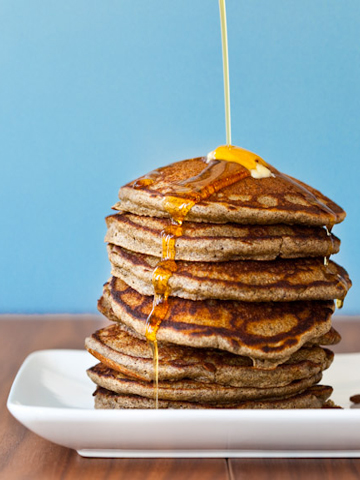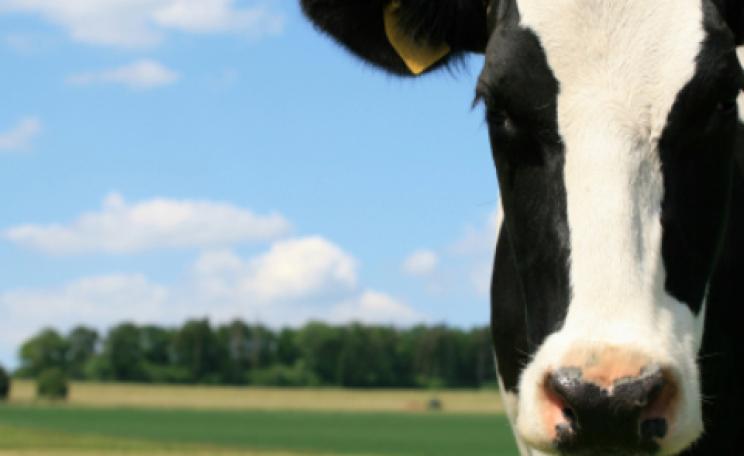Wheat plays a massive role in our lives. World wheat production reached 653 million tonnes last year, according to the International Grains Council, and is expected to grow to 690 tonnes by the end of 2012. In the UK, we used 7.5 million tonnes of wheat for a combination of human consumption and industrial usage last year, according to the National Association of British and Irish Millers. Wheat is both big business and a healthy source of carbohydrates but recently, it has received a worrying genetic makeover.
In 2009 agricultural giant Monsanto, a company that has invested heavily in GM, acquired WestBred LLC, a Montana-based company specialising in wheat germplasm. Despite widespread use in the U.S., South America, China and Canada, Monsanto’s super seeds have yet not crept into the UK, where current legislation prevents GM crops from being grown commercially. This is in part due to the strict EU regulations governing agricultural biotechnology but Defra’s recent approval of research on GM aphid-resistant wheat, due to be conducted by Rothamsted Research this year and next, looks set to change all that.
While the wheat we eat isn’t yet GM, for some people, the grain can wreak havoc on the intestines causing unpleasant bouts of bloating, gas and constipation, as well as lasting damage. ‘Coeliac disease is an autoimmune condition,’ says Lorna Gardner, registered dietician at NGO Coeliac UK. ‘Gluten found in wheat, rye and barley triggers an immune reaction, which results in quite specific damage to the lining of the small intestine. That damage can affect the absorption of different nutrients, like calcium and iron.’ Left untreated, coeliac disease can lead to serious conditions like osteoporosis. Wheat intolerance often displays symptoms similar to those of coeliac disease, adds Gardner, and means you may have difficulty digesting wheat. Your doctor can determine which condition is the culprit, and set you on the path toward digestive ease. But if the thought of making the switch leaves you contemplating the end of life as you know it, don’t panic. There are plenty of alternative grains, seeds and vegetables out there to make your wheat-free transition pain-free and planet friendly.
 The stand-outs: buckwheat and rice
The stand-outs: buckwheat and rice
Ignore the deceptively wheaty name; buckwheat is 100 per cent wheat and gluten free, and is actually a member of the rhubarb family, according to Coeliac UK. Protein-rich, buckwheat seeds are ground into flour and used to make cereals, pastas and baked goods. ‘It has a really lovely, nutty taste and texture,’ says Sim Smith, owner of gluten-free bread emporium, Knead Bakery. ‘So when you’re making certain things, like pancakes and blinis, buckwheat flour is fantastic.’ Not just for stir-fries, rice is available in flour form as well, and is often used to enhance other milled grains. ‘The rice itself tends to have a bit more flavour and nutritional content,’ says Paul Moore, of Orgran, a brand developed for those with allergen sensitivities. Available in both white and whole grain brown, rice flour is finer than wheat so if you plan to make it the star in a recipe, you may need to add a binding agent, like xantham gum, to ensure your treats don’t crumble.
Try these: Orgran Gluten Free Buckwheat Pancake mix, £2.99 at Planet Organic, Neal's Yard Wholefoods Brown Rice Flour, £1.79 at Holland and Barrett
The staples: corn and soya
Sustainability isn’t often associated with these two agricultural mainstays. In fact, corn and soya have been linked with GMOs and mass-market production. Found in everything from books to blue jeans to beauty products, corn derivatives are a staple in consumer goods throughout the world. And soya often brings to mind Monsanto’s controversial Roundup ready seeds. Moore says it used to be difficult to find non-GMO soya, and years ago Orgran discontinued the use of the bean because they couldn’t get assurance that it was GM-free. ‘It really forced the issue on GM, and having a good properly audited supply chain,’ he says. Today, organic eco-friendly corn and soya products are much easier to find, and both are great for those wishing to ditch wheat.
Try these: Doves Farm Organic Corn and Rice Penne, £2.25 at Abel & Cole, Neal's Yard Wholefoods Soya Flour, £1.79 at Holland and Barrett
 The ancient grains: amaranth and quinoa
The ancient grains: amaranth and quinoa
With long and fascinating histories, amaranth and quinoa have begun to make their way back into British diets. ‘They come from old civilisations in South America, and places like that,’ says Moore. ‘So they’ve been eaten widely there for centuries, but there’s not a tradition of eating them in the Western world.’ Quinoa, pronounced ‘keen-wah,’ was a staple part of the Incan diet, who referred to it as the ‘Grain of the Gods,’ according to the Joint Nature Conservation Committee. Try it as a side dish, mixed with chopped vegetables, or as porridge with dried fruit and nuts. Prized by the Aztecs, amaranth seeds can be eaten as a cereal or ground into flour, which can be used for baking. Like buckwheat, quinoa and amaranth are both higher in protein than wheat, and have better amino acid profiles, according to Coeliac UK.
Try these: Crazy Jack’s Organic Fair Trade Quinoa, £2.39, at Abel & Cole, Biona Organic Amaranth Seeds, 500g, £2.49, at Ethical Superstore
The wildcards: gram and millet
Made from ground chickpeas, gram (or Besan) flour is an essential ingredient in Middle Eastern and Indian cuisine and has now made its way into the gluten-free pantry. Use it to make savoury pancakes, fritters and dumplings. Not just for the birds, millet can be used like rice, according to Coeliac UK, and is also a great replacement for couscous. Serve it creamy or fluffy, and dress it up with savoury or sweet toppings.
Try these: Doves Farm Gluten Free Gram Flour, £2.19, King Soba Organic Millet and Brown Rice Noodles, £1.79, both at Planet Organic
The co-stars: potato and tapioca
Often included in gluten- and wheat-free flour blends, potato and tapioca starches can be used as thickening agents in cooking. And though tapioca may bring to mind school puddings, the root, which comes from the cassava plant, isn’t just for sweets. Great fried, baked and crisped, potatoes are another multi-talented tuber perfect for the wheat-free lifestyle. Both tapioca and potato are also available as part of flour blends. Smith says blended flours, such as Doves Farm Gluten Free Plain White Flour, £2.19, is great for baking beginners. ‘I think for general baking a blend is much better because you get the benefits from each ingredient that is in there,’ she says.
Try these: Goodness Potato Starch, £1.93, Goodness Organic Tapioca Flour, £1.73, both at Goodness Direct
 Sim Smith’s buckwheat pancakes
Sim Smith’s buckwheat pancakes
Plagued by illness for much of her childhood, Smith gave up gluten and dairy when she was 12 years old and hasn’t looked back. Launching Knead Bakery last year, she has made it her quest to provide healthy, and delicious baked goods to those with food sensitivities, allergies and intolerances. ‘The majority of glutinous foods are so over-processed that we’re not really getting the nutrients that we should be from things like everyday bread,’ she says. ‘I think it’s about making a conscious decision, and educating yourself about what you’re actually putting into your body.’
Ingredients
150g gluten free flour (we like Doves Farm)
One medium egg
120ml soy milk (or your dairy alternative/rice milk)
120ml water
Method
• Mix the soy milk and water together in a medium size bowl.
• Sift the flour into a separate large bowl, add a beaten egg and combine.
• Pour the water and milk mixture in a little at a time, stirring well in between, and mix until you have a smooth batter.
• Fry a little soy butter or vegetable margarine in a frying pan, then add enough batter to thinly coat the bottom of the pan.
• Turn over (or flip if you’re brave) after a few minutes - the underside should be slightly golden brown.
• Fry for a further few minutes and serve with the topping of your choice.
| READ MORE... | |
 |
GREEN LIVING In season now: what to eat during March Spring has (whisper it) sprung, so make the most of the fresh greens and foraged treats popping up in winter’s wake. Gardening expert James Taylor suggests five to get stuck into |
 |
GREEN LIVING Roadkill: sickening or sustainable? The idea of eating meat sourced from the roadside - whether deer, pheasant, fox or even otter - might sound revolting to you but for some, it's a gastronomic opportunity and a way of avoiding factory farmed meat |
 |
GREEN LIVING How to... buy ethical chocolate If you haven't sorted the valentines present out yet, we've rounded up some sugary (and eco friendly) suggestions |
 |
GREEN LIVING The A to Z of foraging Fed up of paying a premium for supermarket berries and herbs? Take a walk on the wild side and pick your own |
 |
GREEN LIVING The Ecologist meets…Hugh's Three Hungry Boys Channel 4's newest foodie series has plenty for eco warriors to love. The Ecologist catches up with Tim Cresswell to talk foraging |








